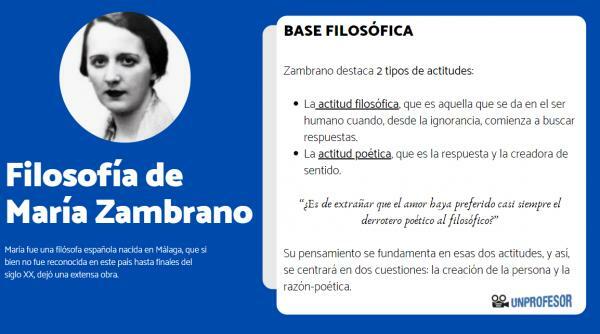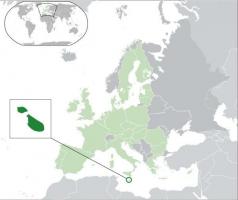Philosophy of María ZAMBRANO: ideas and thoughts
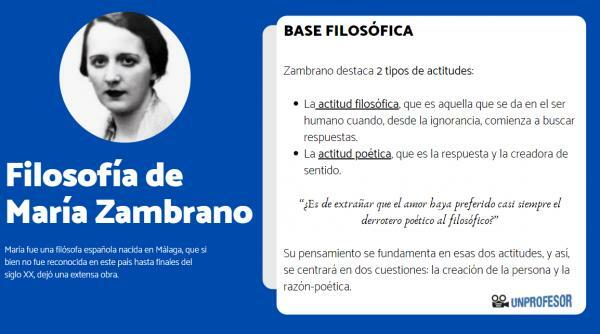
In this lesson from a TEACHER we are going to talk to you about the philosophy of María Zambrano (1904 - 1991), as well as its ideas and thoughts main. María was a Spanish philosopher born in Malaga, who although she was not recognized in this country until the end of the 20th century, she left behind an extensive work.
Shortly before her death, she received the most important literary prizes awarded in Spain: the Prince of Asturias Awards and the Cervantes Prize. She was a great lover of cats, in fact she lived with a lot of felines, and her grave, strangely, was always surrounded by a colony of cats, her guardians
We begin with this lesson on the philosophy of María Zambrano attending to the two types of attitudes defended by her:
- The philosophical attitude, which is the one that occurs in the human being when, from ignorance, he begins to look for answers.
The poetic attitude, which is the answer and the creator of meaning.
“¿It is surprising that love has almost always preferred the poetic to the philosophical course?”
María Zambrano's philosophy is based on these two attitudes, and thus, it will focus on two issues: the creation of the person and poetic reason. As for the first, the central theme in the question of being as a fundamental problem, and which is manifested in the nostalgia, on the hope.
“A philosopher is the man in whom intimacy is elevated to a rational category; her sentimental conflicts, her encounter with the world, is resolved and transformed into a theory ".
The poetic-reason
Poetic-reason thus becomes the perfect method for the creation of the person, who is united to the divine, to history. One method is to find a way, and the human being is, at the same time, the seeker of that way, and the way itself.
This is the greatest ethical action and also a method of being able to "see". To see, the presence of the subject is necessary, as consciousness and will. It is revealing and the reason revealing. The form is prior to the words.
“The light of philosophical thought is not the living light of the sun, but clarity, the principle of life according to Plato, the theologian of this light.”
The creation of the person
The human being is a being in history, but he is also a transcendent being. It is not a mere line sequence of experiences. As far as he can go beyond himself, the human being, he is an incomplete being, he must be done day by day. For Maria, birth is waking up from a dream, and life itself is waking up from different dreams, little by little.
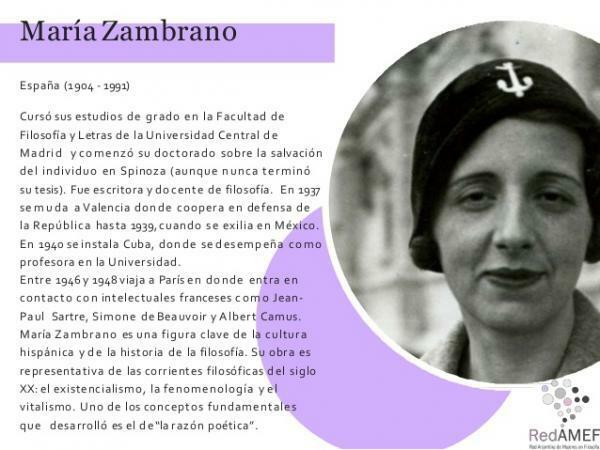
María Zambrano is one of the contemporary philosophers The most prominent and his and his ideas and thoughts move between human beings and the divine, reason and history, dreams, language, poetry and philosophy. The human being is intimately united with the divine. And the divine, it is also necessary to unveil it, to be able to see it. Because the human being is a phenomenon, he is an appearing. The human being is divine, It's time, it's history And therein lies its essence.
“In the beginning it was delirium”, Says María, and this means that the human being felt observed, but he himself did not see reality. It was hidden. The human being cannot see himself. Those by whom he feels observed are the gods, because "everything is full of gods." Delirium, results in two types of attitude: fear and hope. The first, because he feels persecuted, and the second, because of his quality of seeing, without being seen.
The gods order the primeval case, but there are many, that's why the early philosophers they craved the Unit. With the question of being, consciousness appears. And the question about things arises out of nowhere in the being of the mythical gods. For this reason, philosophy is understood as tragedy, since it is born from ignorance, from not having.
The gods give human beings fear and hope. But hope is lost with the "death of god”. Nietzsche, turns the human being by killing the god of philosophy, recovering all the dimensions of him, being, and not being, the anguish and nothing, which occupies, in consciousness, the place of being. Zambrano is also considered one of the feminist philosophers to keep track of.
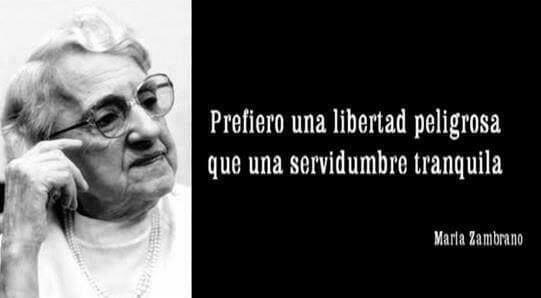
Image: Pinterest
We end this lesson on María Zambrano's philosophy by making a list of hers ormost outstanding bras. Among its pages, you will find a summary of all its thoughts and your ideas. They are as follows:
- Towards a knowledge of the soul
- Philosophy and poetry
- Seneca's living thought
- Towards a knowledge about the soul
- Delirium and destiny
- The man and the divine
- Person and Democracy: A Sacrificial Story
- Spain, dream and truth
- Dreams and time
- The creative dream
- Forest glades
- The tomb of Antigone
- Of the aurora
- The rest of the light
- The blessed
- For a story of pity
- Unamuno
